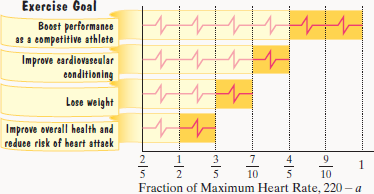
Also, you don’t want to check your heart rate after resting or meditating for a very long time since that’s also not going to be truly reflective.” “After activity, the heart rate might still be high. “You can do it in the morning or in the evening, but you really can check the heart rate at any time,” says Dr. There’s no best time of day to check your resting heart rate. If checking your resting heart rate, count the beats when you haven’t been exercising or physically active for at least 10 minutes. Alternatively, count the beats for 30 seconds, then multiply by two. Other places where you can check your heart rate include:Īfter you locate your pulse, count the number of beats you feel for 15 seconds, then multiply that number by four. You can also measure heart rate by placing two fingers on one of the carotid arteries located on each side of your neck. To find your heart rate, place your index and middle fingers gently against the underside of your wrist on the side just below the base of your thumb until you can feel the pulse. You can check your heart rate easily by using smartwatches and other fitness-tracking wearables, but it’s also simple to check your heart rate manually. During more intense activity, such as exercising, running or working out with weights, your target heart rate should be about 70% to 85% of your maximum heart rate.Īs a general guide, below are the average maximum heart rates and target heart rate zones by age for adults, according to the American Heart Association.

Meanwhile, your target heart rate should be about 50% to 70% of your maximum heart rate during moderate-intensity activity like walking. To find your normal maximum heart rate, subtract your age from 220. It’s also important to know the normal “maximum” heart rate during vigorous activity and the “target” heart rate for your age. And that’s why heart rate is important-because it can be a hint to at least consider exploring those possibilities.” Normal Resting Heart Rate Chart By AgeĬhildren 10 years and older and adults (including seniors) “However, it doesn’t always necessarily mean there’s something going on. “Different levels of heart rate might reflect certain medical conditions,” says Dr. Meanwhile, a resting heart rate that’s too low could cause dizziness, lightheadedness, fatigue or even fainting, which is dangerous and should not be ignored. Why Does Your Resting Heart Rate Matter?Ī heart rate that’s too high or low-especially a rate that’s higher or lower than your usual resting heart rate-could be a sign of medical issues or other health conditions.Ī high resting heart rate could signal an abnormal hormone level, an overactive thyroid, anemia or another potential health issue, such as a heart rhythm abnormality, says Hailu Tilahun, M.D., a cardiologist at Virginia Mason Franciscan Health in Seattle, Washington. Your resting heart rate is measured by your pulse when you’re calm, relaxed, sitting or lying down and not ill. Resting heart rate refers to when your heart pumps the lowest amount of blood your body needs when you’re not exercising. While we work hard to provide accurate and up-to-date information that we think you will find relevant, Forbes Health does not and cannot guarantee that any information provided is complete and makes no representations or warranties in connection thereto, nor to the accuracy or applicability thereof.

The compensation we receive from advertisers does not influence the recommendations or advice our editorial team provides in our articles or otherwise impact any of the editorial content on Forbes Health. Second, we also include links to advertisers’ offers in some of our articles these “affiliate links” may generate income for our site when you click on them. This site does not include all companies or products available within the market. The compensation we receive for those placements affects how and where advertisers’ offers appear on the site. First, we provide paid placements to advertisers to present their offers. This compensation comes from two main sources.
Average heartbeat per minute for free#
To help support our reporting work, and to continue our ability to provide this content for free to our readers, we receive compensation from the companies that advertise on the Forbes Health site. The Forbes Health editorial team is independent and objective.


 0 kommentar(er)
0 kommentar(er)
